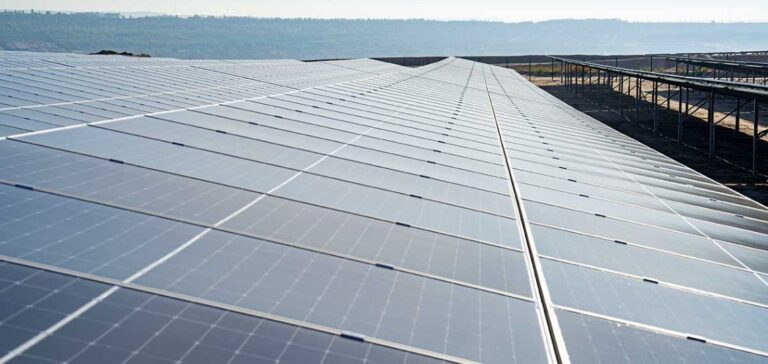RWE has commissioned its first photovoltaic plant in Saxony, located in Wildenfels, in the Zwickau district. The facility includes 36,000 solar modules and covers an area of approximately 20 hectares. The plant has an installed capacity of 20 megawatts peak (MWp), or about 16 MW in alternating current (MWac). According to RWE, the expected annual production amounts to 21 million kilowatt-hours.
A strategic project for RWE in Saxony
This installation marks a significant step in the company’s solar capacity expansion in Germany. Katja Wünschel, CEO of RWE Renewables Europe & Australia, emphasized the importance of this project for both the company and the region. “With the Schönau power plant, we have completed our first solar project in Saxony. This is a crucial milestone for RWE and the municipality of Wildenfels,” she stated.
A local financing model
RWE will pay the municipality a fee of 0.2 euro cents per kilowatt-hour produced, amounting to up to 42,000 euros per year. In parallel, Deutsche Kreditbank AG (DKB) has introduced a savings bond exclusively available to the citizens of Wildenfels. More than 50 individuals have already subscribed to this program, allowing for local financial participation in the project.
Technology and efficiency optimization
The plant’s solar modules are bifacial, capturing both direct sunlight and light reflected from the ground. This technology enhances the overall efficiency of the installation by maximizing solar energy absorption. The site’s operations are designed to minimize human intervention and optimize energy production in the long run.
Prospects for solar infrastructure development
This project exemplifies RWE’s strategy to expand its solar capacity in Germany, a rapidly evolving market. Further initiatives may follow as national energy policies continue to support investments in the photovoltaic sector.






















